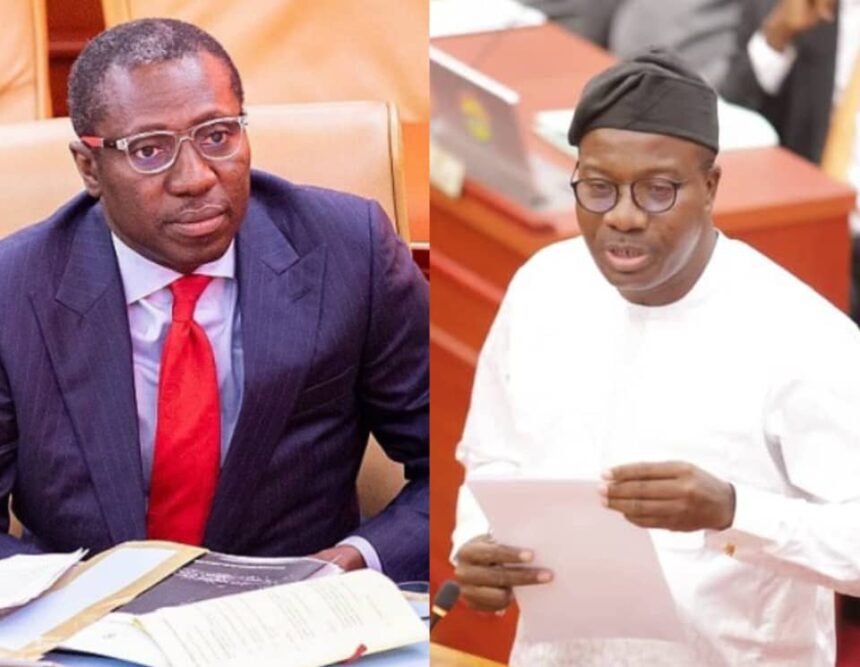There was a brief exchange in Parliament on Monday, November 10, 2025, when Majority Leader Mahama Ayariga objected to Minority Leader Afenyo-Markin’s characterization of Justice Paul Baffoe-Bonnie, the Chief Justice nominee, as a “disputed nominee.”
Mr. Ayariga argued that Parliament’s rules do not permit members to refer to a nominee in such terms after the House has already ruled on the matter.
He referenced Standing Order 123, which, he said, prohibits MPs from reopening issues already ruled on by Parliament.
Mr. Ayariga maintained that labeling the nominee as “disputed” breached parliamentary rules and called on the Chairman to compel the Minority Leader to retract and apologize.
“I am objecting to the use of the term ‘disputed nominee’ because there is no dispute before this House,” Ayariga mentioned.
In response, Minority Leader Afenyo-Markin dismissed the Majority Leader’s interpretation, asserting that Mahama Ayariga was attempting to restrict the Minority’s participation and suppress legitimate political commentary.
He clarified that his statement was a preliminary observation, not a formal debate, and thus Standing Order 123 could not be invoked.
Mr. Afenyo-Markin also contended that the nomination of the Chief Justice had already assumed a political dimension in the public domain, warranting the Minority’s scrutiny and commentary.
“We are political actors. We also have a right to speak. We cannot be prevented from expressing our view,” Afenyo-Markin responded.
The heated exchange prompted the Chairman of the Appointments Committee, Bernard Ahiafor, to intervene and call for calm to allow the vetting to proceed.
Afenyo-Markin explained that the Minority caucus believed the removal of Justice Gertrude Araba Esaaba Sackey Torkornoo was shrouded in opacity and ran contrary to the principles of jurisprudence and due process.
The episode not only heightened tensions in the vetting room but also revealed the extent of partisan polarization surrounding Justice Baffoe-Bonnie’s nomination.






